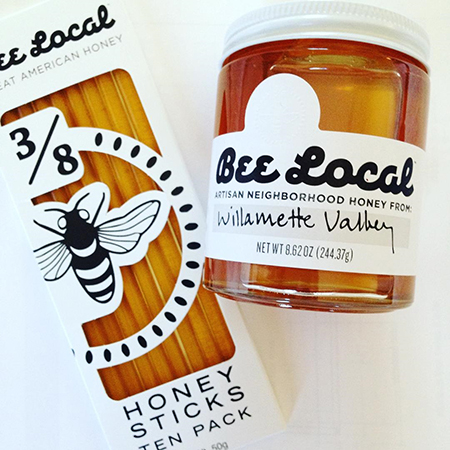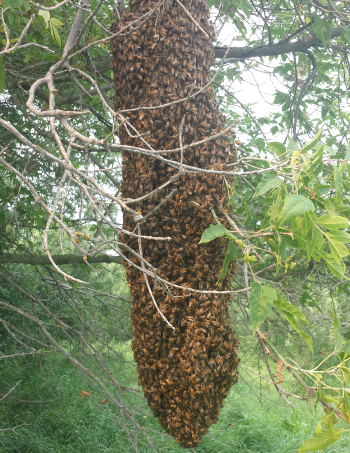Urban Beekeeping
In February 2016, the City of Winnipeg amended the Downtown Zoning By-law 100/2004 to support properly managed apiaries for beekeeping in downtown Winnipeg. In October 2017, the City of Winnipeg amended its city-wide zoning to expand accessory beekeeping to all areas. Following is some helpful information and resources related to urban beekeeping.
Information on the public consultation
Why is Urban Beekeeping Important?
- Bee numbers have been declining in recent years due to pesticides, parasites, disease and loss of habitat. Encouraging local beekeeping is a part of a global effort to protect the species.
- Bees are responsible for the majority of pollination. One third of food crops require pollination, and the presence of honey bees can increase harvest productivity. Local crops such as canola, alfalfa, and sunflower benefit from the use of honey bees as pollinators. The same applies to the productivity of urban flower, fruit and vegetable gardens.
- Agricultural crops of one plant type offer a singular pollination period over a vast area, whereas urban areas include a much more diverse array of plants and flowers with staggered pollination periods throughout the season. This leads to more nourished bee colonies with a greater chance of survival.
- Due to the urban heat island effect, the city offers a longer blooming season and warmer foraging days than rural areas. It also contributes to higher winter survival rates.
- Pollinators like honey bees enhance the beauty of the city through improvements in flower and tree growth.
- Bees are part of a balanced ecosystem. Many of our trees, such as willow and poplar, benefit from the pollination services of bees, which helps to preserve and grow our natural areas. The wealth of flowering plants that blanket the prairies owes much of its existence to the presence of the bees. Plants that bees help to foster provide seeds, fruit, and nuts that feed numerous animal species native to Canada.
Guidelines for Urban Beekeeping
The following City guidelines complement provincial regulations and promote good management practices for urban beekeeping.
Best Practice
- Urban beekeeping is discouraged before completing a recognized course in beekeeping and/or seeking membership in a local bee club. See resources below.
- All beekeepers shall register with the provincial apiarist and shall comply with the Manitoba Bee Act wherever required. See resources below.
- Every beekeeper shall adhere to good management and husbandry practices and maintain bees in such condition as to prevent swarming, aggressive behaviour and disease.
- Indications of disease should be reported to the provincial apiarist.
Planning and Design Standards
| Item | Use Specific Standard |
Maximum number of hives |
|
Fencing |
Fencing must be six (6) feet (1.8 metres) in height and secured with a gate |
Setbacks |
Hives must be set back 20 feet (6.1 metres) from any property line unless the fence:
|
Exemptions from fencing requirement |
Hives located on rooftops or elevated terraces, decks or balconies at least eight (8) feet (2.4 metres) above grade |
- Ensure the beehives are located to ensure adequate sun exposure and airflow for the health of the bees.
- Installation of a windbreak structure may be required as bees may have trouble foraging if wind inhibits hive access.
- A constant source of water must be provided at all times for hives starting before the snow melts in the spring and continuing late into fall.
- Hive openings should be oriented away from nearby public spaces, balconies, terraces or elevated patios.
- Rooftop locations should have access via an enclosed staircase or elevator, and have adequate structural integrity to support the additional weight of beehives.
- Appropriate railings around the perimeter of the roof should be considered for the safety of beekeepers.
| Fast Facts | |
|
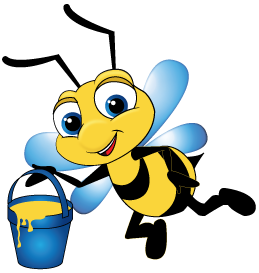
|
Helpful Information about Swarms
Swarms are a natural occurrence that can happen when the bee population within a hive grows beyond capacity. A queen bee will lead a portion of the bees away to seek out a new place to build a hive. Bees in a swarm may be discovered resting on a tree or other structure and are more docile because they have no hive or eggs to protect. Good management reduces the likelihood of a swarm occurring. The provincial apiarist should be the first point of contact if a swarm is discovered. (See resources below). If required, the provincial apiarist can partner with the local beekeeping community to gather and rehouse bee colonies.
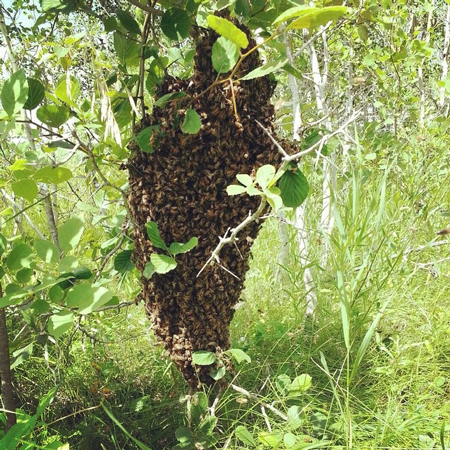 |
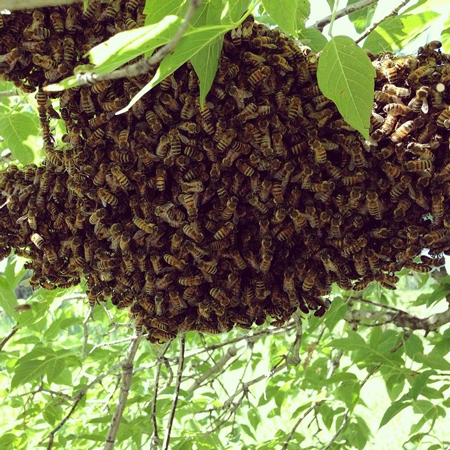 |
|
| Photo credit: Beeproject Apiaries | Photo credit: Beeproject Apiaries | Photo credit:
Jeff Paulsen and Shawna Paulsen |
Application and Approval Process
- Any new beekeeping operation must be approved by the City of Winnipeg. The application is initiated at the Zoning and Permits office.
- Applications must include written authorization from the landowner (per Status of Title).
- Applications should include beekeeper's provincial registration number (if available).
- Applications must include a site plan detailing the proposed set up.
Resources
Provincial Beekeeper Registration Form
Red River Apiarists' Association
Manitoba Beekeepers' Association
University of Manitoba - Beekeeping for the Hobbyist


